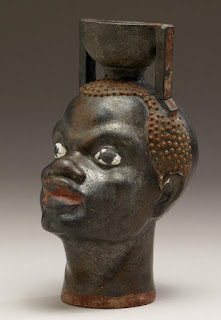Greek Troubles Prompt Macedonia NATO Push
Greece’s growing political and economic problems have its small neighbor Macedonia sensing an opportunity to push hard for joining NATO, a move that has been stalled for years thanks to Athens’ opposition because of disputes over Macedonia’s name, Politico reports.
Defense Minister Zoran Jolevski told Politico his country would be prepared to apply to join NATO using the ungainly name “Former Yugoslav Republic of Macedonia,” which is insisted on by Greece.
This term is perceived as an affront by Macedonians, who resent being identified with the defunct Yugoslavia rather than the home country of Alexander the Great, a historical legacy also claimed by Greece.
Following Yugoslavia’s breakup in the early 1990s, Greece successfully lobbied for Macedonia to be known as FYROM in international settings, including at the United Nations. In the UN Interim Accord of 1995, Greece promised not to block Macedonia’s membership in international bodies if it applied under the temporary name of FYROM.
But 13 years later, when Macedonia tried to join NATO, along with Croatia and Albania, Greece vetoed its accession. Greece denies blocking Macedonia, calling NATO’s decision a collective one.
“All NATO member countries recognized that Macedonia had by that point met the NATO membership criteria,” said Jolevski. “Unfortunately our southern neighbor added one more criterion to that summit, the name.”
Greece argued that its northern neighbor should instead be called New Macedonia or Upper Macedonia, whereupon Macedonia sued Greece at the International Court of Justice and won in 2011. But its moment had passed.
The alliance’s formal position is that the country “has to find a mutually acceptable solution with Greece to the issue over its name before it can be invited to join NATO.”
Athens’ argument is that historical Macedonia was a part of the Classical Greek world, while today’s Macedonia, populated by ethnic Slavs, has no link to the past except for the name. It also worries that Macedonia is making claims on the Greek region of the same name, something Macedonia denies.
Macedonia, for its part, has gone out of its way to promote the connection to Alexander the Great, even building an enormous statue of the ancient warrior in the center of Skopje, to Greece’s fury.
But with Greece in meltdown, Skopje sees a chance to break the stalemate by announcing that it’s willing to join NATO as FYROM, while pointing out that Macedonian forces have served alongside NATO forces in Iraq, Afghanistan, and Bosnia-Herzegovina.
“We have to recognize the wider strategic picture,” said Liam Fox, a former British defense secretary who participated in a June gathering organized Jolevski to promote Macedonia’s accession. “NATO has weaknesses in the far north, in the Balkans and in the Caucasus. In the far north [Sweden and Finland] there’s not much we can do, and Georgia and Azerbaijan are not ready to join. But Macedonia and Montenegro are ready.”
A recent opinion poll shows 68 percent of Macedonians support NATO membership even though they know it may involve the FYROM label.
Recent incidents have, however, cast doubt on Macedonia’s suitability for membership of the Western military alliance.
In addition to a political crisis set off by a wiretapping scandal, there have been armed clashes. In April, 40 members of the now-disbanded Kosovo Liberation Army (KLA) took a Macedonian policeman hostage, and in May, Macedonian police fought off an attack by apparent KLA members that left eight police officersdead.
The KLA represents ethnic Albanians who fought a guerrilla war against Serbia in the ’90s; Albanians make up around a quarter of Macedonia’s population. Skopje argues that the incidents actually show Macedonia’s ability to keep terrorists at bay.
Macedonia and those who support its accession are hoping U.S. President Barack Obama will want to show NATO’s relevance by expanding the alliance to include Montenegro and Macedonia. That means the two would have to accede at or before NATO’s next summit, scheduled to take place in Warsaw next summer.
“Obama is the first [post-Cold War] U.S. president not to have NATO enlargement under his belt,” said Sally Painter, a former Clinton administration official involved in 10 of the 12 latest NATO accessions and now assisting the Macedonian government. “It’s not that hard to push for Macedonian membership, and Greece is not that important anymore.”
Michael Diamessis, Greece’s NATO ambassador, said: “Greece does not set any ‘conditions’ for the accession of the Former Yugoslav Republic of Macedonia to NATO,” pointing out that “NATO nations believe that countries seeking NATO membership would have to be able to demonstrate that they have fulfilled certain requirements. These common principles and values include good neighborly relations.”
Diamessis did not respond to a request for comment on whether Greece would accept a FYROM accession.




